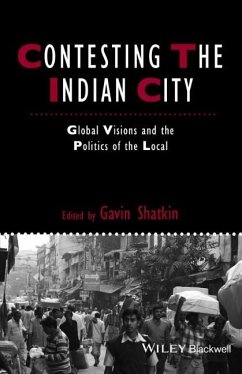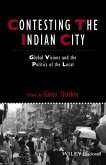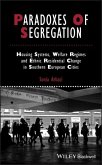Contesting the Indian City features a collection of cutting-edge empirical studies that offer insights into issues of politics, equity, and space relating to urban development in modern India.
Features studies that serve to deepen our theoretical understandings of the changes that Indian cities are experiencing
Examines how urban redevelopment policy and planning, and reforms of urban politics and real estate markets, are shaping urban spatial change in India
The first volume to bring themes of urban political reform, municipal finance, land markets, and real estate industry together in an international publication
Features studies that serve to deepen our theoretical understandings of the changes that Indian cities are experiencing
Examines how urban redevelopment policy and planning, and reforms of urban politics and real estate markets, are shaping urban spatial change in India
The first volume to bring themes of urban political reform, municipal finance, land markets, and real estate industry together in an international publication
"Each chapter is a brilliant incursion into one facet of "The Indian City" as presented in this book. Together the authors give us a refracted account of that complex condition that is a city. The chapters regularly seem to be in conversation with each other, an unusual achievement for a collection."
--Saskia Sassen, Columbia University, and author of Territory, Authority, Rights
"Global flows have created deep contestations and hybrid conditions in Indian cities that are often incomprehensible to planners and policy makers. This book offers a nuanced and scholarly reading of this complex landscape through examining 'potent samples' at all scales across a range of Indian cities. An extremely well timed book, given the intellectual void in the debate on contemporary Indian Cities."
--Rahul Mehrotra, Architect and Professor of Urban Design, Harvard University
--Saskia Sassen, Columbia University, and author of Territory, Authority, Rights
"Global flows have created deep contestations and hybrid conditions in Indian cities that are often incomprehensible to planners and policy makers. This book offers a nuanced and scholarly reading of this complex landscape through examining 'potent samples' at all scales across a range of Indian cities. An extremely well timed book, given the intellectual void in the debate on contemporary Indian Cities."
--Rahul Mehrotra, Architect and Professor of Urban Design, Harvard University








